Introduction
OpenSpecimen allows you to track the shipment of samples from one site to another. For example, collection site to the central repository. To ship boxes, refer to Shipment of Containers
Below are prerequisites to ship/receive specimens using OpenSpecimen:
- The shipping site and receiving site should use the same instance of OpenSpecimen.
- Both sites and the logged-in user should be part of the CP that has the specimens being shipped.
- Cannot ship specimens from multiple sites in one shipment.
- If the specimens being shipped are stored in a container, the site of the container should be sending site.
- When receiving a shipment, the user can only store specimens in the containers of the receiving site.
- The sending site should be the site to which specimens belong (Site under CP).
Create
You can create shipments from multiple pages. The "Action" button now available in all specimen pages allows you to create shipments without having to add specimens to the cart.
Expand to view steps..
You can create a new shipment by going to the "Shipment" module and scanning or typing in the specimen labels. This works well when you already have the list of specimens to ship.
- Go to the home page and click on the 'Shipments' card.
- Click on the 'Create' button and select the option 'Specimens'

- On the 'Create Shipment' page, fill in the details and click on 'Next'.
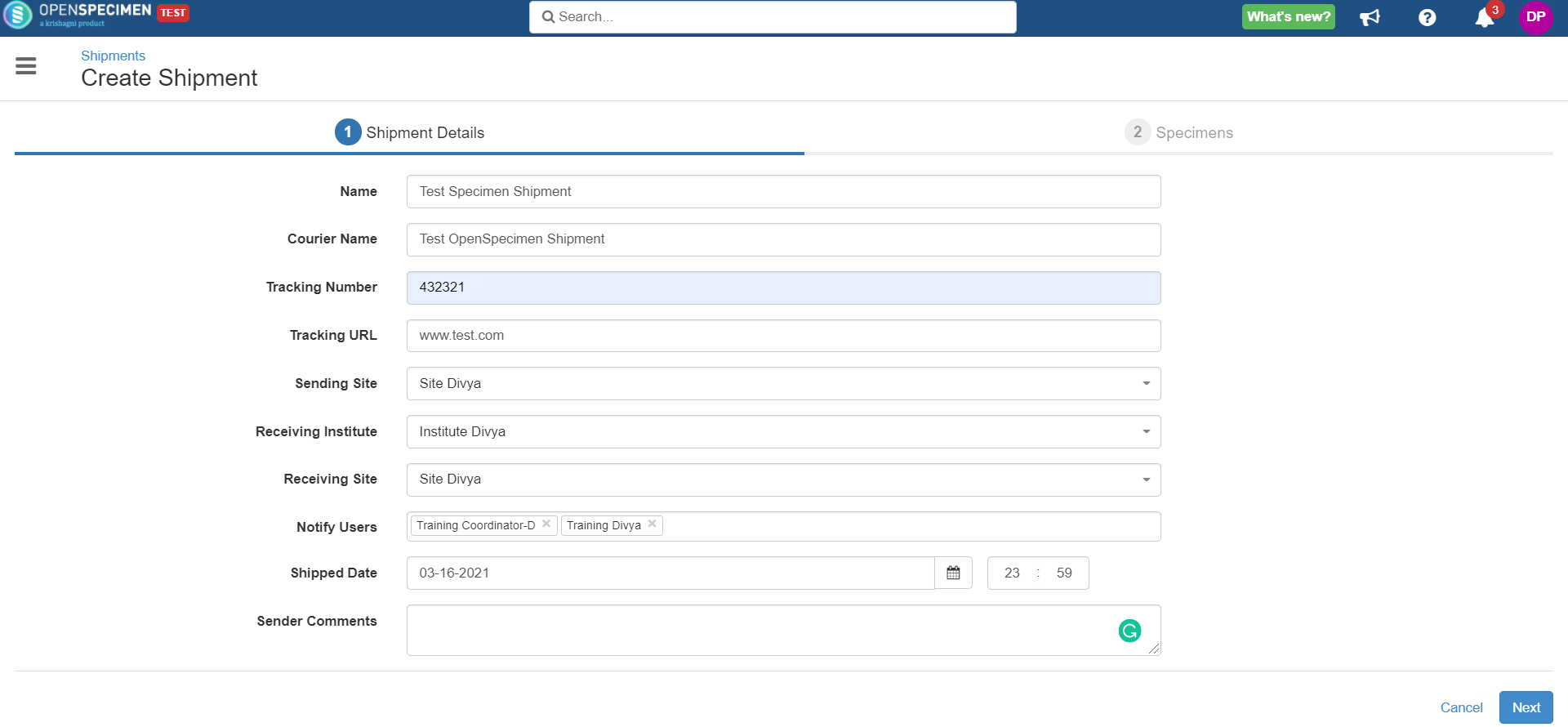
- Add specimen labels/barcode and click on "Add".

- Selected specimens will appear on the next page. To confirm the shipment, click on 'Ship'
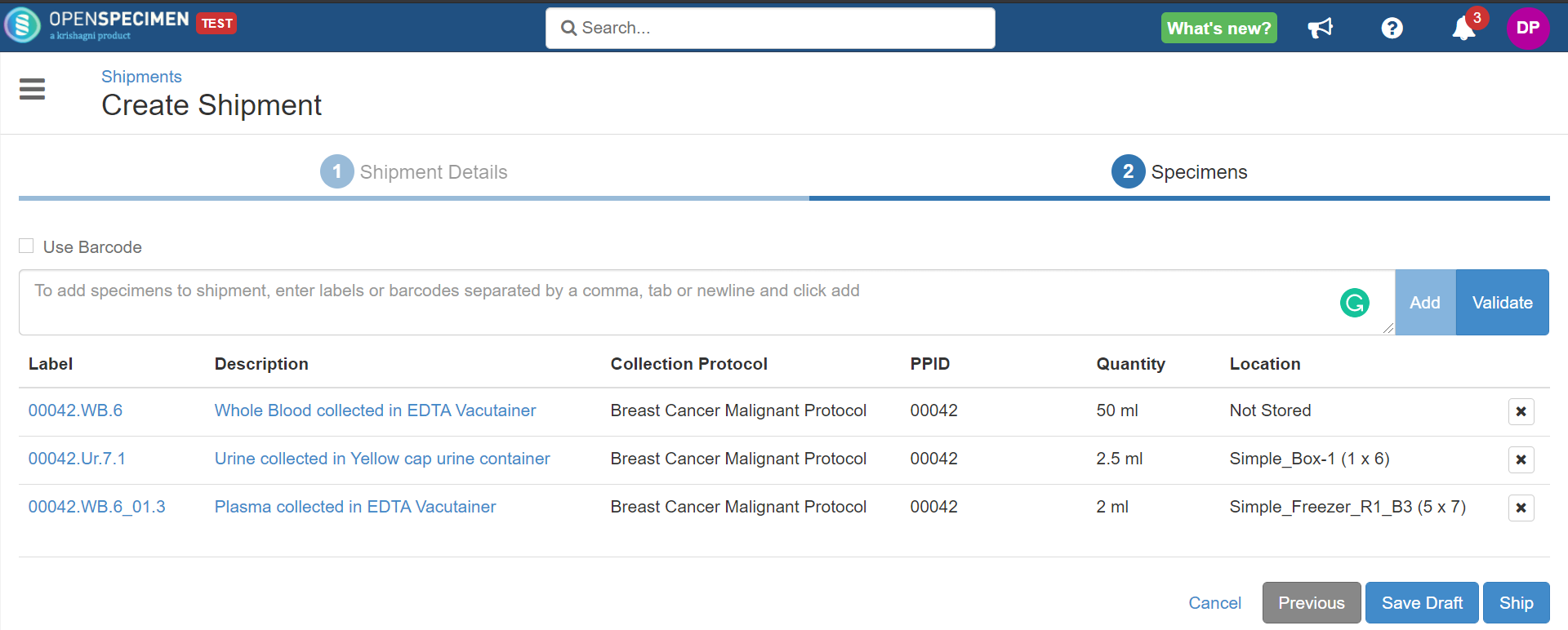
- Further, the users selected in 'Notify Users' will receive an email with a link to the shipment details.
- A 'Shipment Shipped Event' is created under all specimens that were shipped.
Ship from query
You can query specimens using the query interface and can ship from the results page.
Click here to view the steps...
- Go to the queries list page and click on 'Create'
- Create a query using any filters and click on 'View Records' to get the list of records
- Select the specimen rows or click on 'Select All' from the results page and click on 'Specimens' → 'Ship'
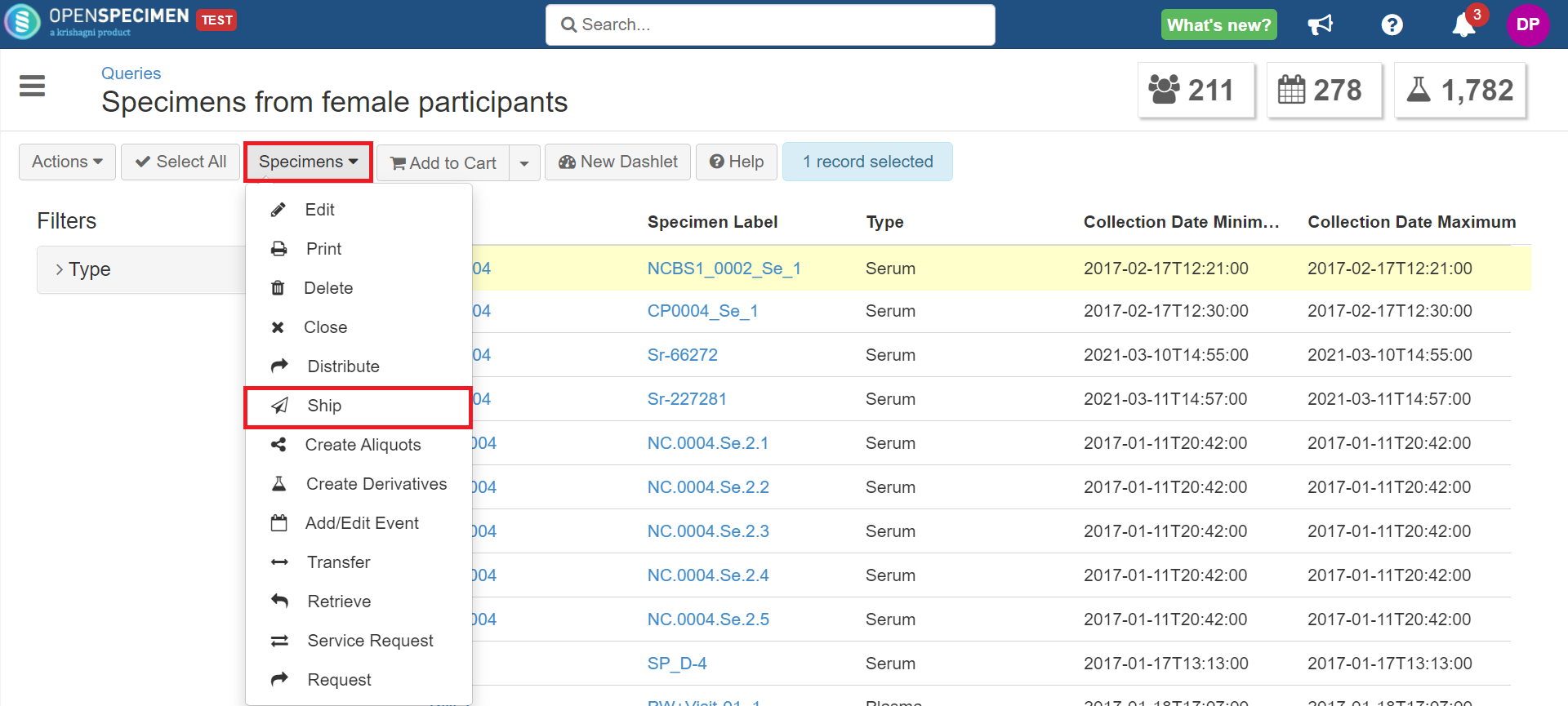
- Enter the further details and click 'Ship' to ship the specimens.
Ship from cart
You can create a cart of the specimens to be shipped and can ship from the cart.
Click here to view the steps...
- Create a 'Specimen cart' or click on an existing cart from which the specimens have to be shipped.
- Click on the 'Actions' button and select the option 'Ship'.
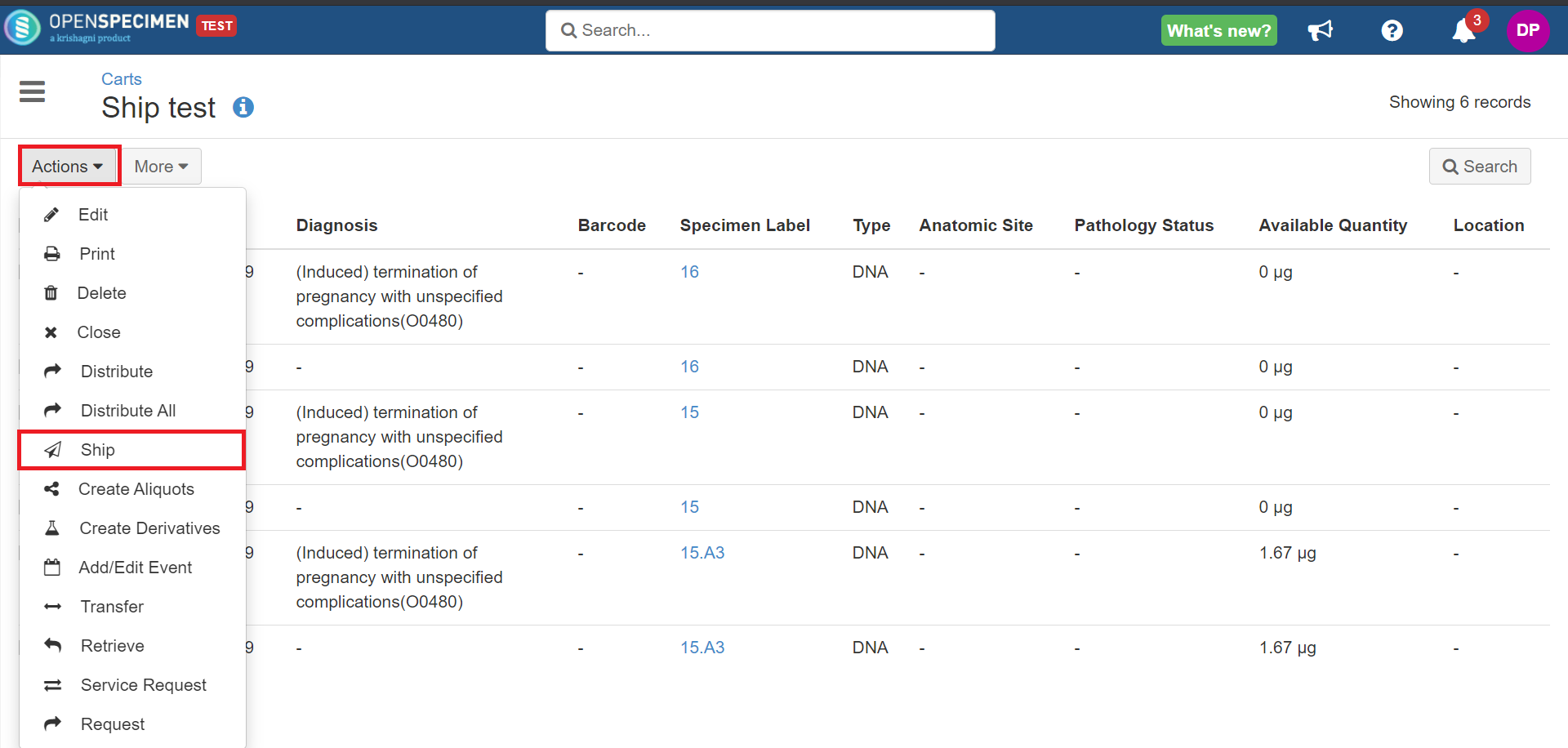
- Enter the further details and click on 'Ship' to ship the specimens.
Ship from other places
You can also ship specimens from the below-listed pages:
- CP specimen list
- Container specimen list
- Reserved specimens list
- Visit and specimen pages
- Participant specimen list
E.g., Ship specimens from the participant's specimen list
Click here to view the steps...
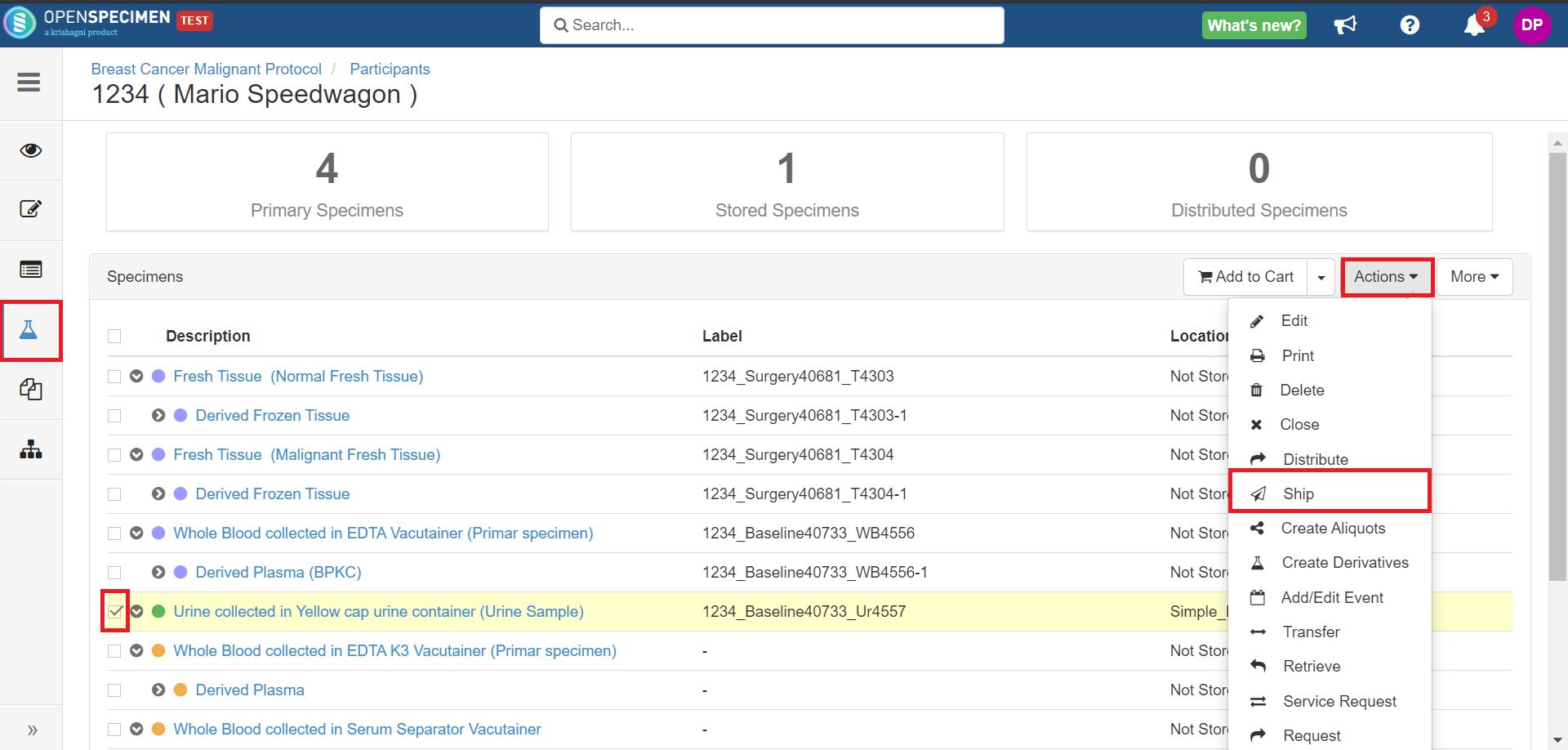
- Enter the further details and click 'Ship' to ship the specimens
Similarly, you can ship specimens from any specimen list pages.
Receive
The receiver can receive the shipment by clicking on the 'Receive' button from the shipment details page.
Click here to view the steps...
- To receive the specimens, user from receiving site logs in and selects 'Shipments' from the homepage.
- Select the shipment from the list and click on 'Receive'.

- Review the shipment details and click on 'Next' to confirm the receipt of samples.
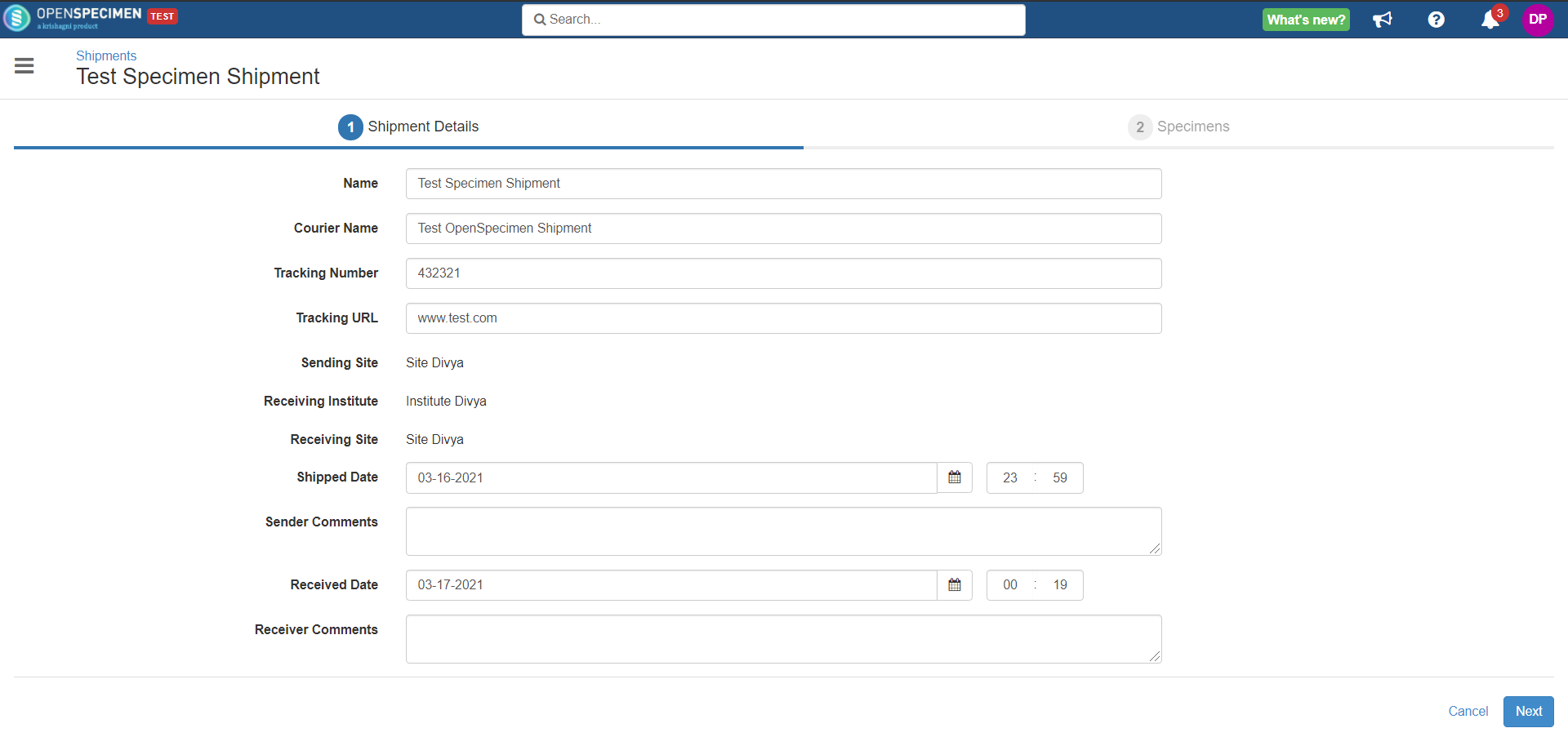
- In the next step, you can choose the
- Received sample quantity
- Quality (e.g., acceptable, unacceptable, etc.).
- Storage location: where the receiving site is storing the specimen
- On saving, the system will create a 'Shipment Received Event' for each specimen in the shipment.
Edit the specimen details while receiving a shipment
Many a time, the specimens are collected in multiple hospitals for different studies. These specimens are labeled and then shipped to the receiving site facility for further processing and storage purposes. For faster collection and data entry, the labeling at hospitals is done using generic labels like the randomly generated unique numbers, etc. However, when specimens are received at the receiving site, the biobankers relabel the received specimens based on their type, collection container, study, or other established practices for better organization and retrieval purposes.
Click here to expand...
There is a system-level setting that will allow you to relabel the shipped specimens while receiving the shipment. To enable/disable this setting, go to 'Settings' → 'Administrative' module → 'Relabel Shipment Specimens' → Select option 'Enabled' and click on the 'Update' button.
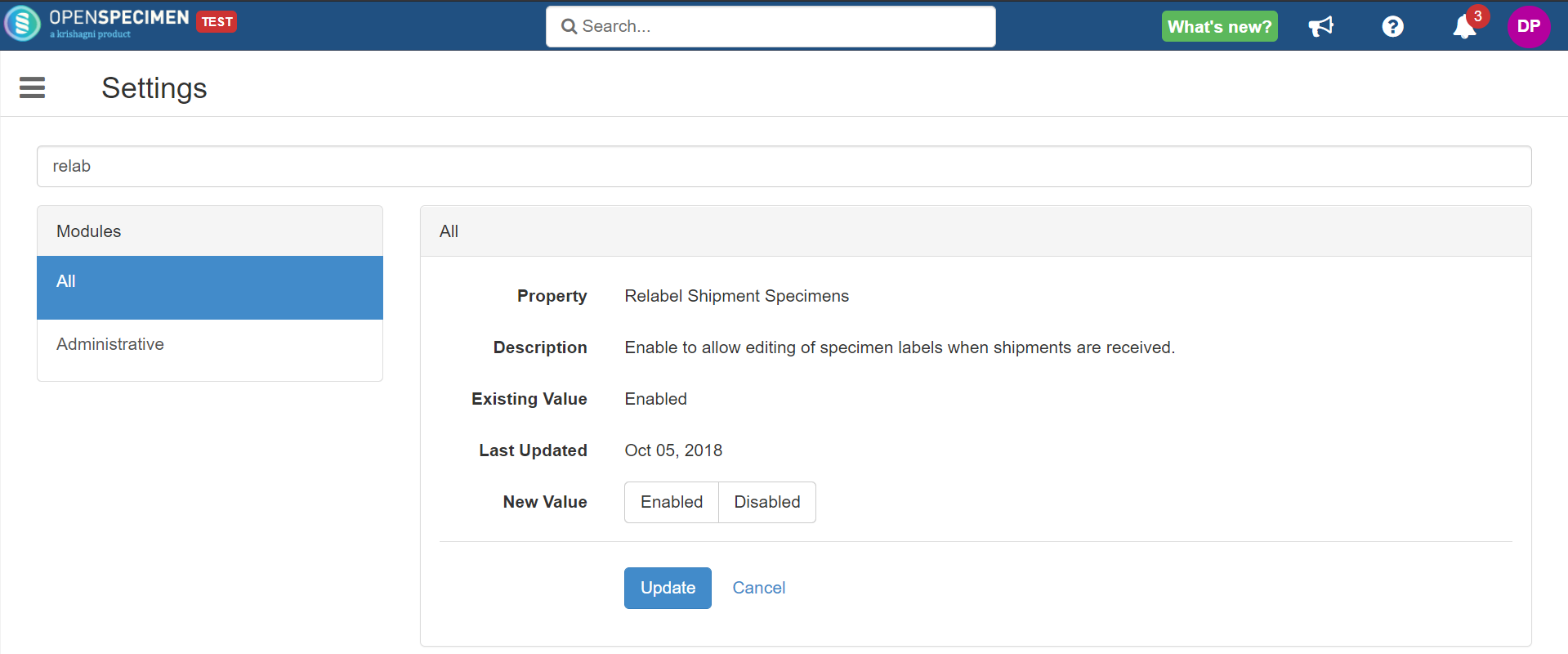
Once enabled, you can edit the specimen labels along with other details while receiving the shipment. From the shipped shipments overview page, click on the 'Receive' button→ Click on the 'Next' button,→ Change the specimen labels or other details, and click on the 'Receive' button.
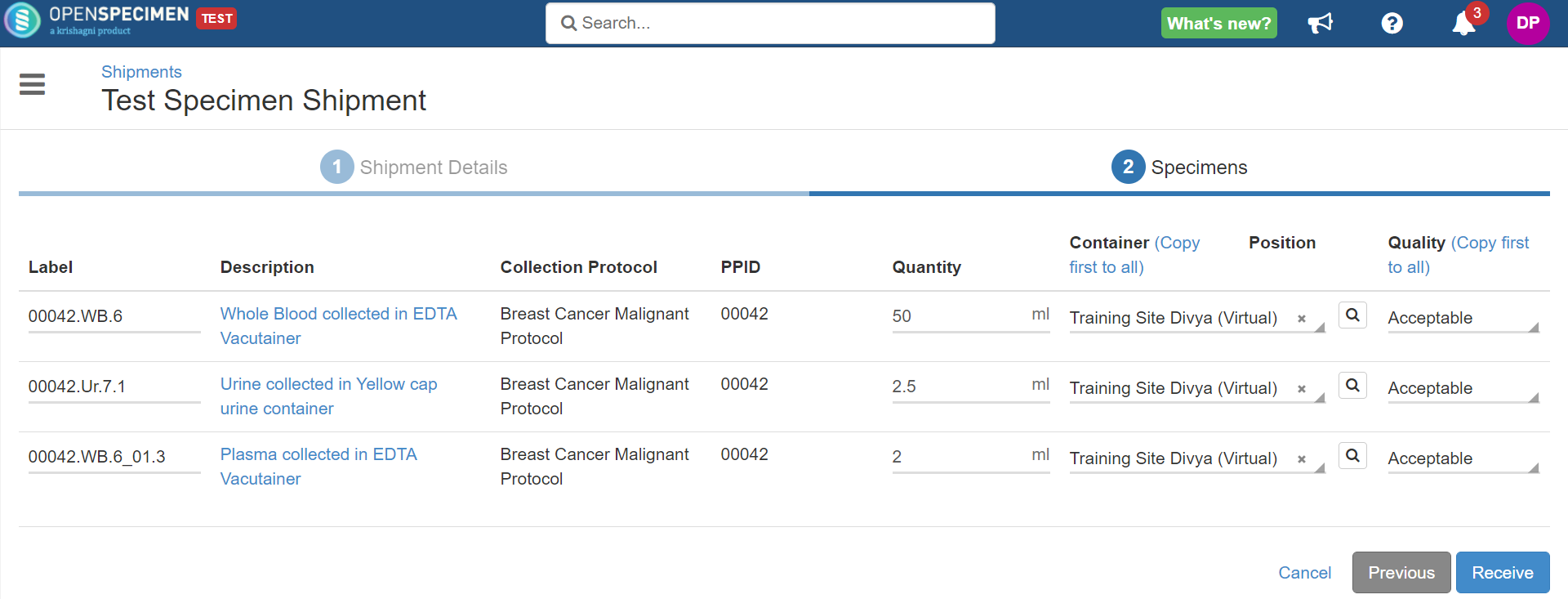
Edit
From v7.1 onwards, you edit the shipment details as well. Shipments in draft, shipped, or received mode can be edited.
Click here to expand...
Fields allowed to be edited are mentioned below,
- Shipment name
- Tracking URL
- Courier name
- Sender/receiver comments
- Shipped and received dates
- Received quality
The following attributes are not editable:
- Sending and receiving sites cannot be modified after the shipment is shipped.
- Specimens cannot be added or removed from the shipment after it is shipped.
- Specimen location and quantity cannot be modified after the shipment is received.
Shipment Report
It is a CSV file that you can download from the shipment page. The system comes with a default report and can be customized by the super-admin.
You can download a shipment report as a CSV file with all the details of the shipment events and sample information from the shipments overview page.
Click here to view the steps...
- Go to the shipments list page.
- Click on the shipment whose report has to be downloaded.
- Click on 'Download Report' from the overview page.
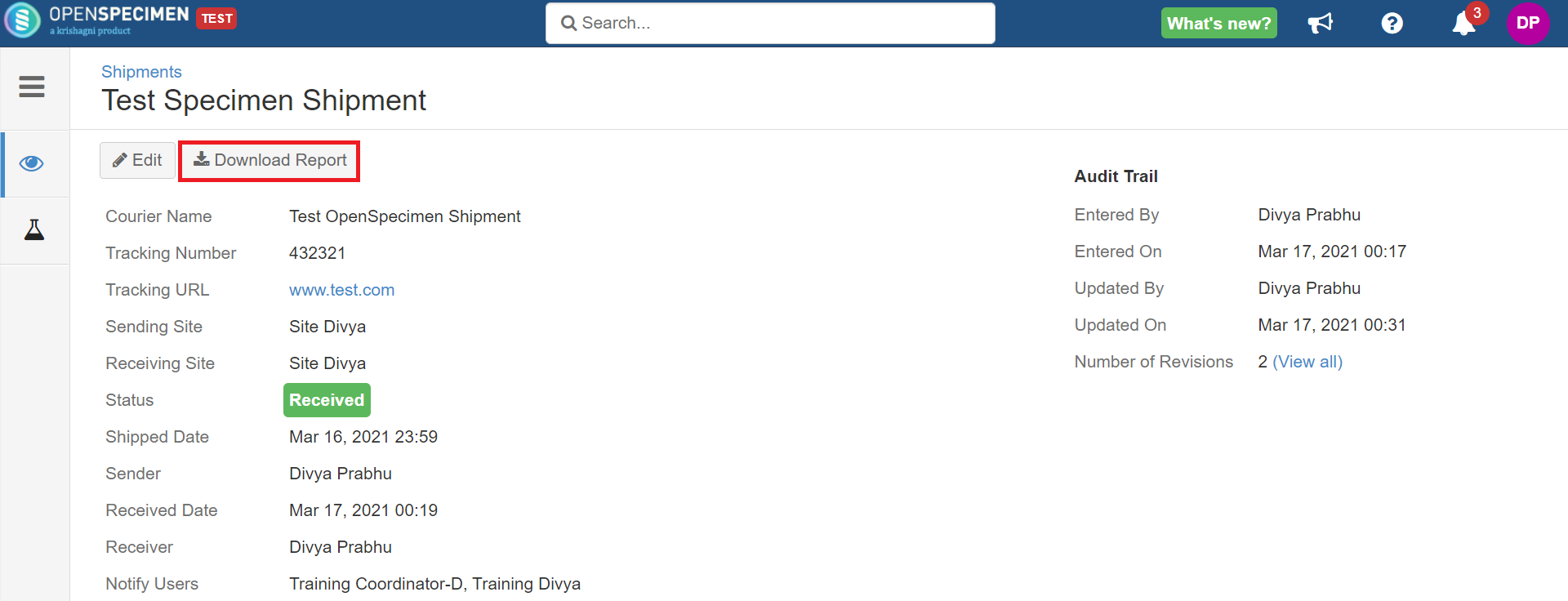
If you want to customize the shipment report, you will have to create a saved query using the query interface. In the query results, you have to define the columns you wish to include in the CSV.
Click here to view the steps...
- Login as super admin and go to the homepage.
- Click on 'Settings' → 'Common' module.
- Click on the property 'Shipment Report'

- Specify the identifier of the saved query and update the property.
Create in bulk
You can create specimens shipment in bulk through bulk operation, for more details refer to 'Create/Update Specimens Shipment'.












